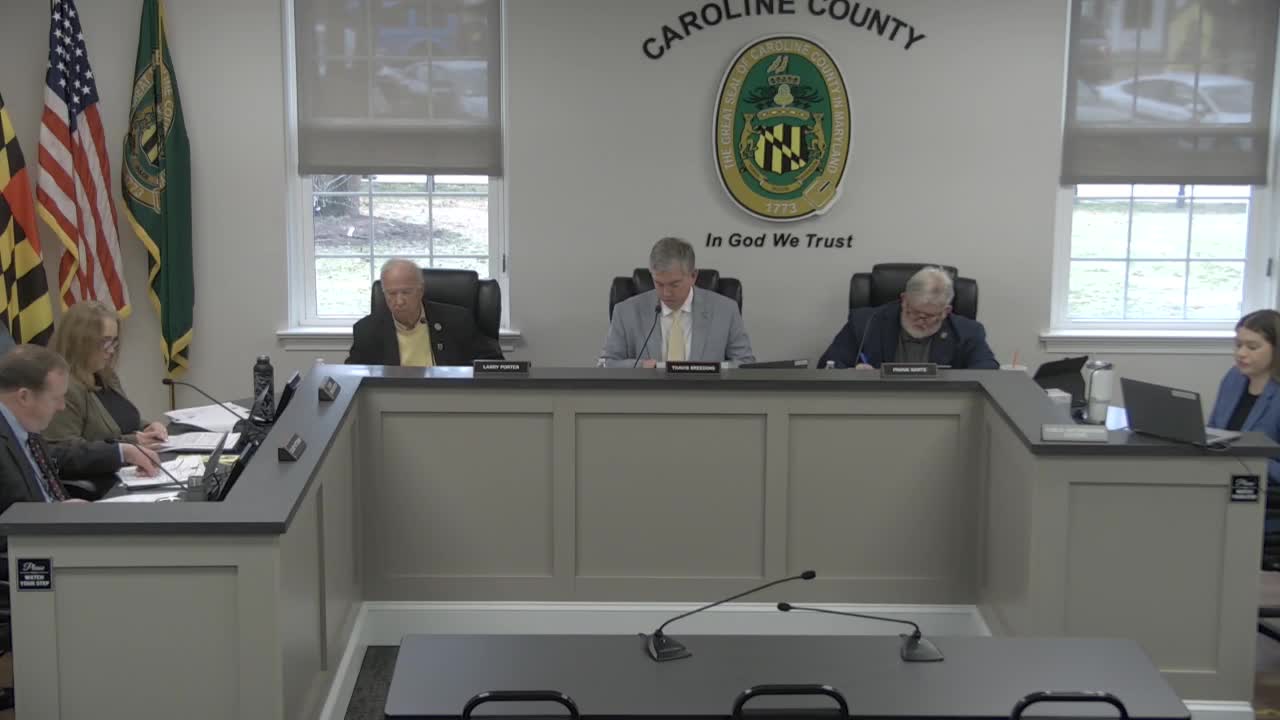Caroline County reviews draft Police Accountability Board and Administrative Charging Committee ordinance
Get AI-powered insights, summaries, and transcripts
Subscribe
Summary
Caroline County commissioners held a workshop March 4 to review a draft ordinance establishing a Police Accountability Board (PAB) and Administrative Charging Committee (ACC) under the 2021 state law, focusing on membership, attendance, term limits, confidentiality and municipal coordination.
Caroline County commissioners held a legislative-workshop discussion on March 4 about a draft ordinance to formally establish a Police Accountability Board (PAB) and an Administrative Charging Committee (ACC) under state law enacted in 2021.
Stuart Barrow, county attorney, and outside counsel who has advised the PAB and ACC described the draft as a refinement of earlier county resolutions and said it reflects months of input from the sheriff’s office, municipal chiefs and board administrators. The draft would reduce the joint board composition to seven members total, with a five-member PAB and a five-member ACC, and three PAB members serving on the ACC, with two outside members on each panel.
Barrow said the ordinance introduces an attendance standard that would automatically remove members who miss more than 25% of meetings in a rolling 12-month period; that change is a policy recommendation rather than a state mandate. Sheriff Baker and Chief Bacorn (municipal chief) both participated in the discussion; the sheriff told commissioners he opposed mandatory term limits and recommended grandfathering existing members who belong to law‑enforcement organizations such as the Fraternal Order of Police (FOP).
Commissioners and staff discussed training requirements, cost implications and how confidentiality breaches would be handled. Staff recommended revising draft language so allegations of confidentiality violations would be presented to the commissioners for determination of investigation and potential removal; commissioners agreed to add language that the board may refer such complaints to the county for investigation and final disposition.
On overlapping jurisdiction, Chief Bacorn and other municipal leaders asked that the county circulate the draft to the three municipal police departments and allow them an opportunity to comment before official introduction. Commissioners agreed to circulate the draft to the municipal agencies and to return to workshop if municipalities propose substantial comments.
Participants also queried recordkeeping and expungement. The sheriff explained internal administrative complaint files are retained at the sheriff’s office for background checks and that a pending state bill would allow expungement of administrative findings that are unfounded or exonerated after three years; county counsel said current state law constrains expungement and the county will watch pending legislation.
No formal ordinance vote occurred at the workshop; the board directed staff and county counsel to make the discussed edits, remove term‑limit language, and circulate the draft to municipal police departments for review prior to formal introduction.
